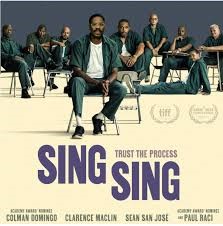
I saw Sing Sing over the weekend, and it blew me away. This film was a masterclass in acting and directing. It was thematically powerful, had a definite point of view, and drove home emotionally charged components. It had important messages about incarceration and the ideas of rehabilitation vs. punishment.
Let’s talk about the story first.
This wasn’t a traditionally told story. The screenplay was based on the book The Sing Sing Follies by Clarence “Divine Eye” Maclin, about his time in Sing Sing Prison when he participated in a theater group. The screenplay had several contributors, and this was not a traditionally told story. If you’re looking for a traditional 3-act structure, you won’t find it in this movie. And while there is a Hero’s Journey that can be followed, that isn’t really what this movie is about. This movie is about a few direct, emotional moments, and the narrative serves to get us to those moments. This is a subtle movie in many ways, not least in the storytelling. There is a lot of subtext in this very layered narrative that the audience might not consciously be aware of, but they will be able to feel as the story moves along.
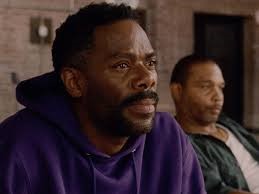
Usually, I am not a fan of this type of storytelling. I prefer screenplays that have a tight structure that builds drama throughout the story. However, the screenwriters managed to massage this story in a way that made it dramatic and emotional. Much of that had to do with the characters’ circumstances, and this is very much a character-driven movie. With that in mind, the screenwriters masterfully gave the characters outstanding character arcs that allowed the audience to engage with them on an emotional level, which made up for the lack of conflict and drama in the storyline. This is a very emotional film.
About the acting
In a word, the acting in Sing Sing is superb. Many of the actors were formerly incarcerated and went through this program at Sing Sing prison, so there was a feeling of sincerity and realism in the acting that wouldn’t have been there if regular cinematic actors who had never set foot inside a prison had gotten those roles.
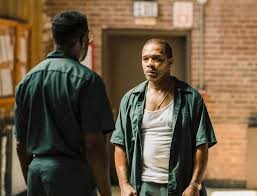
In particular, Coleman Domingo, who already showed out quite well last year in Rustin, gives another masterclass in acting in this film. As with the storytelling, subtlety is the name of the game here. Domingo, playing John “Divine G” Witfield, who is serving time for a crime he didn’t commit, is a man who finds hope in the theater group, but that hope is tested by the everyday reminders that he is not free and that freedom is a long way off.
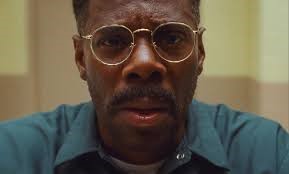
That feeling is captured in three scenes. The first scene in which he visits a room high in the prison with an open window. He stretches his hand outside as far as his arm can reach to feel the free air he can’t feel on the inside. The next is a moment at the end of his clemency hearing that ends abruptly, telling him that the judgment will likely not be in his favor. He lingers for a moment and stutters out as politely a thank you as he can muster, hoping that last act of kindness will tilt the scale in his favor. The last is when he receives a thick envelope telling him his plea has been rejected. He stands there looking at the envelope for a long time, almost hoping that looking at it long enough will change what it says. Those three moments are gut-wrenching and emotional, demonstrating strong storytelling that is carried by phenomenal acting.
Oscar Season Came Early This Year
This is likely the first of this year’s true Oscar contenders. Will it win anything? Will it even be nominated for anything? Only time will tell. We still have a lot of great films to watch. But the bar for acting has been set, and it has been set high.
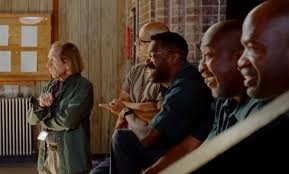
Go see this movie in a theater if you get a chance. It isn’t glittering with production design or visual effects, but it deserves your attention. It has a point of view, and you need to focus on it completely to experience its full impact.